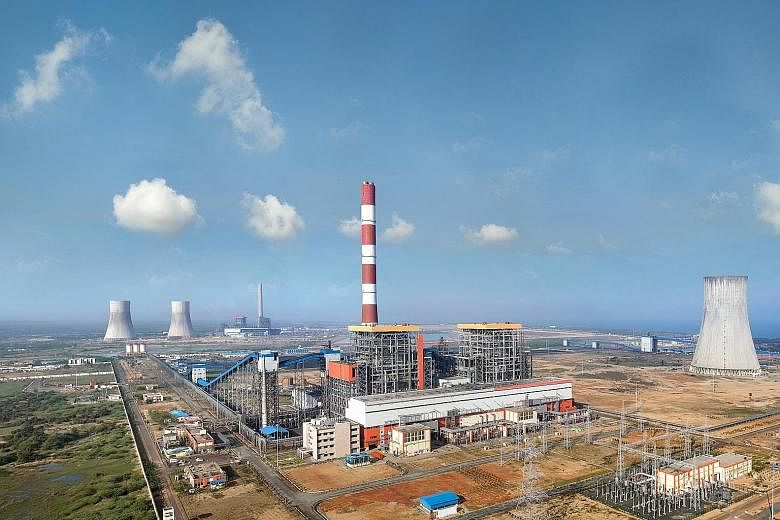NEW DELHI • India's money-losing state power retailers may be scaring off power plant investors, according to Sembcorp Industries, compounding the industry's woes that have left about 20 per cent of the country without electricity.
Delayed payments by the distributors and their reluctance to sign long-term purchase contracts are risks for investors, said Mr Vipul Tuli, chief executive of the Singapore company's India unit.
Sembcorp joins Spanish wind power producer Acciona and Goldman Sachs Group-backed ReNew Power Ventures in voicing concerns about the precarious business environment in India's power industry.
"The lack of long-term offtake contracts and growing receivables are eroding returns for investors," Mr Tuli said in an interview last week in New Delhi.
"India must be competitive with other countries in terms of sustainable long-term infrastructure returns, in order to attract investments."
Sembcorp, which is controlled by Temasek Holdings, has 2,748 megawatts of installed generation capacity in India, including three coal- based units of 660 megawatts each. One of those units has yet to find long-term buyers for its power.
A fourth unit, also without a contract, is yet to be commissioned, Mr Tuli said.
Long-term purchase commitments are not available for almost 22 gigawatts of India's thermal plants, about 7 per cent of the country's total power generation capacity, according to a member of the Central Electricity Authority, the planning wing of India's power ministry.
That is forcing generators to sell in short-term markets where tariffs are lower.
Sembcorp is adding about 150-200 megawatts of renewable capacity in India every year and would consider adding more if risks are lowered, Mr Tuli said.
The company has 768 megawatts of operating renewable generation capacity in the country.
"Electricity distributors badly need industrial electricity demand to go up. That will significantly improve their finances and spur them to secure long-term supplies," said Mr Debasish Mishra, a partner with Deloitte Touche Tohmatsu in Mumbai.
"Until that happens, these companies will be wary of locking themselves into long-term contracts and make do with available supplies in the shorter-term markets."
Most of India's provincial electricity retailers lose money on electricity sales, selling below cost to the poor and agricultural customers and losing revenue to people who illegally tap into power supplies.
Subsidy payments from state governments and higher tariffs to rich households and industrial users partially compensate for the losses, but still leave retailers financially vulnerable.
BLOOMBERG

